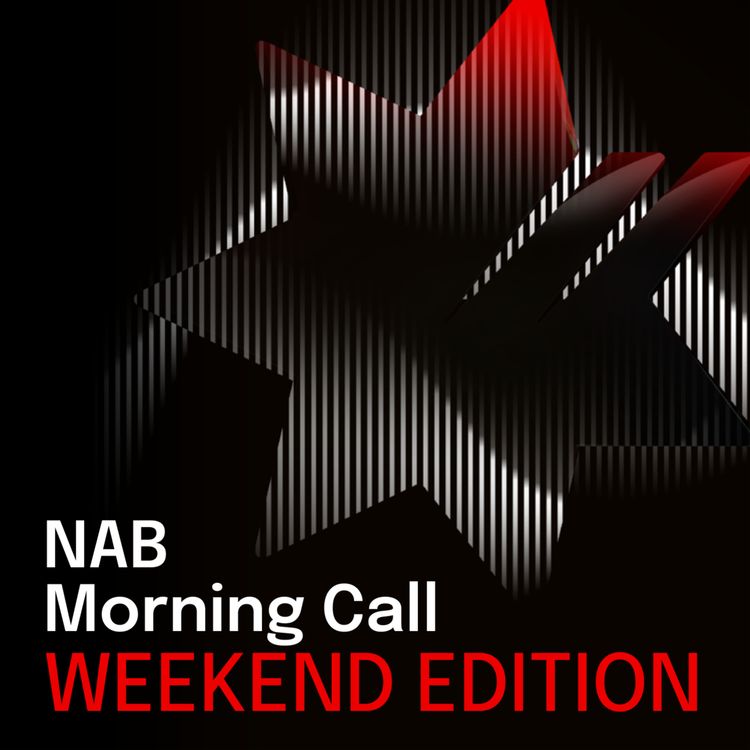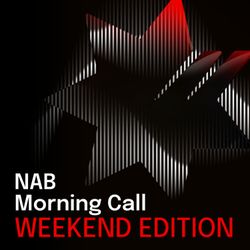Share

NAB Morning Call
Weekend Edition: Age Care Crisis Only Partially Fixed
Friday 28th March 2025
Please note this communication is not a research report and has not been prepared by NAB Research analysts. Read the full disclaimer here.
New aged care legislation, which becomes law on July 1st, goes somewhere to fixing the funding crisis that has plagued the aged care industry over recent decades. Residents will need to pay more from their assets and super funds. Russell Bricknell is CEO of Juniper Aged Care in Western Australia and says it provides a path for future investment, but there’s a large amount of catching up to do. Many facilities have fallen into states of disrepair as operators struggled to remain solvent. But the bigger issue, says Russell, is how future aged care homes win planning consent, and how a workforce is found to staff these new in-demand facilities: two issues that weren’t addressed in the Aged Care Taskforce.
More episodes
View all episodes

6. Weekend Edition: The property turnover problem
29:46||Season 10, Ep. 6Friday 16th January 2026Please note this communication is not a research report and has not been prepared by NAB Research analysts. Read the full disclaimer here.Australia’s housing market keeps getting more expensive, yet the real issue isn’t just how many homes we build — it’s how slowly they are changing hands. Dr Nicola Powell, chief economist at Domain, says turnover has become a structural drag, creating inefficiencies that stem far more from policy settings than from raw supply. Even with immigration easing, demand still outpaces movement, and rising prices continue to inflate the value of the national housing stock far faster than the number of dwellings themselves. Building approvals have jumped, apartment plans are surging, and forecasts point to further price gains in 2026, but the deeper question remains: why isn’t the market slowing? From interest‑rate dynamics and construction costs to population shifts and the FOMO factor, today’s episode digs into the mechanics behind a market that pushes prices ever high, well beyond the bounds of affordability.
5. Calm Down
14:27||Season 10, Ep. 5Friday 16th January 2026NAB Markets Research Disclaimer Financial Services Guide | Information on our services - NABThe mood in markets has brightened as tensions around Iran appear to have eased, with President Trump signalling a softer military stance, and attention has swung back to stronger‑than‑expected US data — lower jobless claims, upbeat regional manufacturing surveys and a solid equity rebound led by tech and small caps. Oil has slumped sharply, bond yields are higher in the US and UK, and the US dollar is firmer, while the UK has surprised with a 0.3% rise in November GDP that keeps the quarter out of the red. With a quieter day ahead — NZ PMI, US industrial production and the NAHB housing index, NAB’s Gavin Friend makes sense of a week that ends much calmer than it began.
4. Uneasy Feeling
13:16||Season 10, Ep. 4Thursday 15th January 2026NAB Markets Research Disclaimer Financial Services Guide | Information on our services - NABA cautious, uneasy calm hangs over markets this morning, with no ruling yet from the US Supreme Court on tariffs and no military response against Iran, even as the US and UK quietly evacuate personnel from a Qatar base. Equities have stumbled, led by sharp falls in the S&P and NASDAQ, while investors rotate out of big tech and into small caps and precious metals, pushing gold, silver, copper and tin to fresh records. Bond yields are lower across the board, the US dollar is softer, and commodities are firmer, all underscoring a clear risk‑off tone. China has posted a striking US$1.2 trillion annual trade surplus on stronger‑than‑expected export growth, US retail sales have surprised on the upside, and Australia’s job vacancies continue their slow drift lower. We also touch on mixed US bank earnings, improving NZ labour data, upcoming regional Fed surveys and UK GDP and industrial production out today.
3. Help is on its way
15:19||Season 10, Ep. 3Wednesday 14th January 2026NAB Markets Research Disclaimer Financial Services Guide | Information on our services - NABA softer run of US inflation has kept hopes of further rate cuts alive, even as markets juggle mixed earnings, fragile consumer sentiment in Australia, signs of recovery in New Zealand, and a surge in Japanese yields driven by election rumours. Commodities are climbing on geopolitical tension, with President Trump’s “help is on its way” message to Iranian protesters fuelling speculation of US action and adding to the broader sense of unease.
2. Riding the Retribution Highway
14:49||Season 10, Ep. 2Tuesday 13th January 2026NAB Markets Research Disclaimer Financial Services Guide | Information on our services - NABPresident Trump has been directing sharp words at Jerome Powell and the Federal Reserve, while the Fed Chair has pushed back, suggesting that any legal action against him is politically motivated. It’s the kind of confrontation with the central bank that many had anticipated, yet markets have taken it in their stride so far.Where markets have reacted more noticeably is the proposal for a 10% cap on credit‑card interest rates — though this may prove to be another policy idea that makes noise without ever becoming reality.We also look ahead to US CPI, and unpack a couple of Australian data points: consumer confidence, household spending, and what they collectively signal for the RBA. If further confirmation was needed, yesterday’s numbers strengthen the case for another rate rise — potentially as early as next month.
1. Slip sliding away
16:47||Season 10, Ep. 1Monday 12th January 2026NAB Markets Research Disclaimer Financial Services Guide | Information on our services - NABUS rate cut expectations are starting to erode, even as jobs growth softens. Markets are beginning to question whether weaker payrolls really matter if inflation refuses to fall — and this week’s CPI and PPI will be critical in deciding that. But, as NAB's Ray Attrill points out, it depends on Trump's nomination for Fed chair. The delayed Supreme Court ruling on tariffs now looks set for Wednesday, adding another layer of uncertainty. And here at home, fresh Australian consumer spending data lands today, giving an early read on household momentum heading into year end. Welcome to 2026, which promises to be just as firey as President Trump’s first year in office.
289. Weekend Edition: 2025 – The Year Australia Held Its Own
32:01||Season 9, Ep. 289Friday 19th December 2025NAB Markets Research Disclaimer Financial Services Guide | Information on our services - NABAustralia has managed to steer its own course through a turbulent 2025. Taylor Nugent explains how the RBA resisted the urge to slash rates early in the year, instead holding firm as inflation proved more stubborn than expected. That stance kept the economy balanced while other central banks lurched between easing and tightening. Compared with New Zealand’s harsher approach and the US’s tariff‑driven dilemmas, Australia’s policy mix looks measured – not perfect, but enough to avoid the extremes.Rodrigo Catril adds that the Aussie dollar has been resilient, even if it hasn’t fully matched the US dollar’s swings. Its fortunes are now more tied to China and Asian sentiment than Wall Street, and with local rates set to rise while the Fed eases, he sees the currency heading towards 70 cents. Ken Crompton rounds out the picture with bonds, noting strong demand for Australian debt and a widening yield gap with the US. Together, the NAB team sketch a story of a country that hasn’t soared, but hasn’t stumbled either – Australia has held its own.
288. Central Banks Deck the Halls with Cuts and Holds
16:55||Season 9, Ep. 288Friday19th December 2025NAB Markets Research Disclaimer Financial Services Guide | Information on our services - NABMarkets seem to be heading to the end of the year on a fairly steady note, with currencies little changed today and equities pushing higher . Bond yields are mixed, oil is nudging back above $60 a barrel, and silver’s up and down like a yo‑yo.For our final morning edition of the year, NAB’s Gavin Friend joins us from London to unpack the latest central bank moves: the Bank of England’s razor‑thin vote to cut rates, the ECB holding firm, and the Bank of Japan poised to lift rates to their highest since 1995. We also touch on Norges Bank and the Riksbank staying put, US inflation data and jobless claims, and a surprisingly strong GDP print out of New Zealand.Plenty to chew over before the Christmas break — from hawkish cuts to resilient economies, and what it all means for the Fed, fiscal policy, and the year ahead.
287. Banking on a cut, a hike and a hold.
14:40||Season 9, Ep. 287Thursday 18th December 2025NAB Markets Research Disclaimer Financial Services Guide | Information on our services - NABIt’s a big Thursday, with markets bracing for the BoE and ECB after UK CPI surprised with outright deflation. German sentiment disappointed again, and Japan’s stronger exports added to the case for a BoJ hike tomorrow. All eyes are on the November U.S. CPI release later today. Equities remain under pressure with no Santa Claus rally in sight, oil prices edge higher amid Trump’s Russian tanker threats, and silver hits fresh highs. Meanwhile, New Zealand shows signs of recovery with improved confidence and GDP prospects. Ray Attrill joins for his final time in 2025.